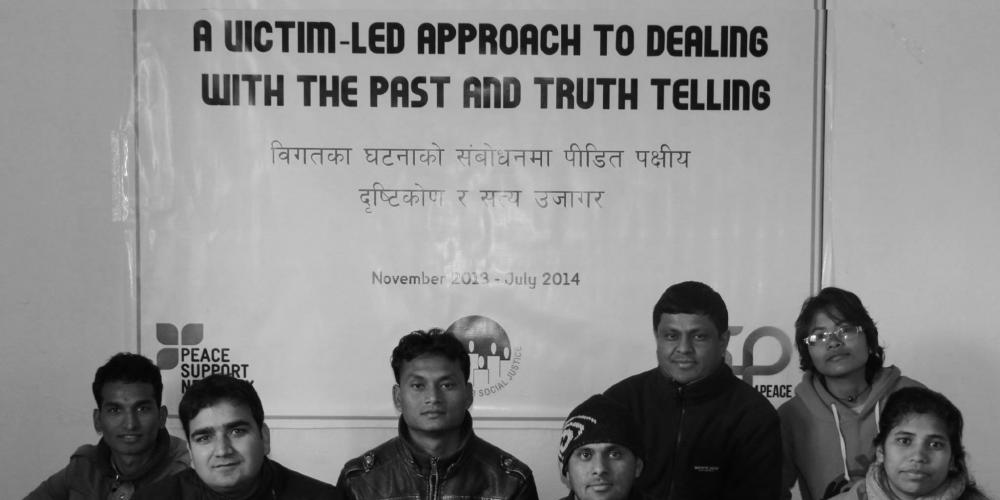Country: Nepal
Region: Bardiya, Dang and Sunsari
Project Title: A Victim-led Approach to Dealing with the Past and Truth-telling
Project Duration:
Initial phase: December 2013 – April 2014
Extension phase: Fundraising
Implementing Organization: Committee for Social Justice (CSJ)
Funded by: Peace Support Network
Status: ongoing / Fundraising extension phase
Project Summary*:
The violations of Nepal’s conflict show no sign of being comprehensively addressed - 6 years after the end of a conflict that killed 15,000 people and left more than 1,300 persons missing. Currently, there is no government in place in Nepal. Among the elites in Kathmandu consensus to major issues is mostly lacking which results in political stalemate. As regards the issue of impunity though, all major political forces remain united in a silent consensus. As a consequence, no formal process of Transitional Justice (TJ) has yet been implemented. This means that victims hardly find a chance to tell the truth or least to get justice. In such a situation, increasingly common in the aftermath of contemporary conflict, there is a need for imaginative approaches to truth, dealing with the past and memory after violence, and a need for affected communities to find their own ways to move forward in the absence of a willing state.
Victims mobilisation and organisation acts as the foundation of any informal or formal justice process and is thus one major pillar of any activities in the field of dealing with the past after violent conflict. Within the framework of the project, marginalised victims in remote areas of Nepal are given space to tell their stories and share their experiences of the conflict. These oral reports will be documented in the form of printed, audio and video materials as well as by photographs and widely shared across Nepal within a tailor-made advocacy strategy. At the beginning of the project, project staff participate in a workshop on how to strategically incorporate arts based approaches to their human rights advocacy. The major output of the project is the production of a documentary film. This film will summarize the victims’ stories and experiences and will form the advocacy tool box of grass-roots victims’ groups in the target region and on the national level.
The advocacy strategy includes grass-roots community dialogues in order to raise mutual understanding within the affected communities and to harmonize knowledge – often, conflict victims are stigmatized while knowledge and understanding about their sufferings and needs are missing. Advocacy materials and experience will be shared and disseminated locally across communities and replicated in other districts and communities to learn from the projects’ advocacy style. Furthermore, it is part of the advocacy strategy to organise an event in Kathmandu to launch the documentary. Kathmandu elites will be invited and get a chance to experience the true misery in which many victims live and the challenges they face today.
The project emphasises the role that must be played by victims of violations. It seeks to build the capacity of victims’ groups, such that they can play a full part in representing their needs and demands. The project represent a truth-telling process from below, challenging the failure of elites to permit a Truth and Reconciliation Commission or a Commission on Disappearances with a process that emerges in the communities of victims, addressing the social fissures that conflict has left on the terms of those most affected in the spaces where impacts are most felt.
Expected Outcomes / goals:
- Victims’ mobilisation and organisation
- Documentation of past atrocities
- Story and truth telling
- Production of a documentary and other advocacy materials
- Local construction of memory / memorials
- Community dialogues and enhanced mutual understanding
- Enhanced (advocacy) strategy / documentary launch
* Political Analysis not updated


